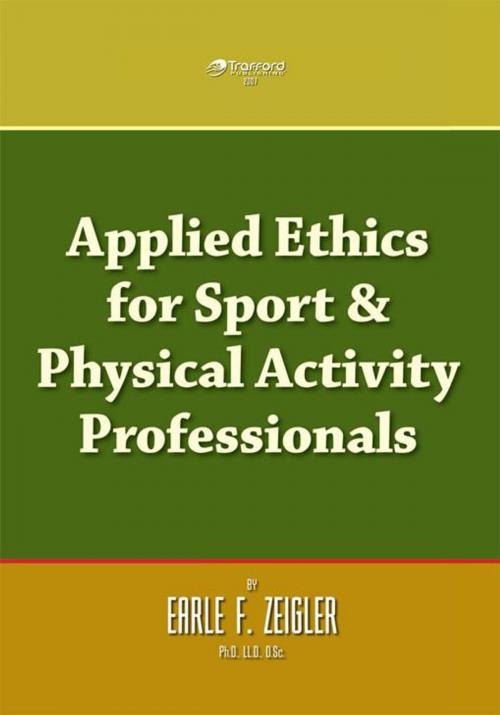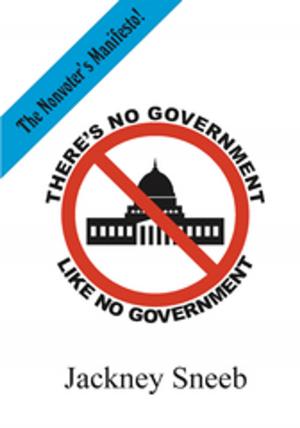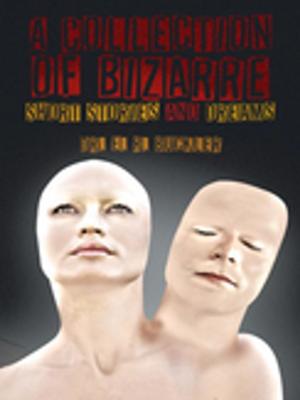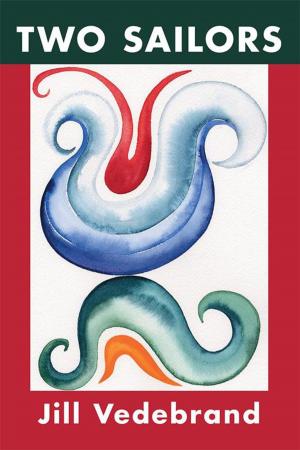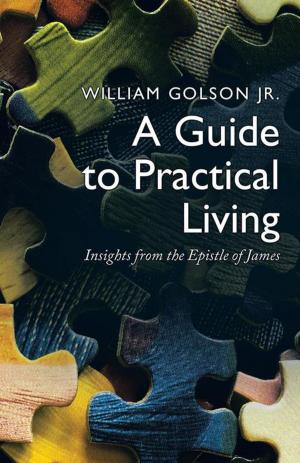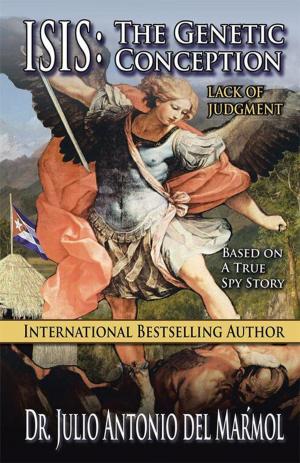| Author: | Earle F. Zeigler | ISBN: | 9781466959101 |
| Publisher: | Trafford Publishing | Publication: | May 14, 2007 |
| Imprint: | Trafford Publishing | Language: | English |
| Author: | Earle F. Zeigler |
| ISBN: | 9781466959101 |
| Publisher: | Trafford Publishing |
| Publication: | May 14, 2007 |
| Imprint: | Trafford Publishing |
| Language: | English |
This text is designed to provide the sport and physical activity professional with an introduction to ethical decision-making. It can apply readily to the reader's personal, professional and environmental (or societal) lif--if such a division can be established in connection with ethics and morality in one's life pattern. (In the final analysis, of course, everything is "personal.")
Any new book being recommended for use by a great many people needs solid justification. In Applied Ethics Sport and Physical Activity Professionals, an excellent case can be made for use of this basic, multi-phased (1-2-3-4) approach to ethical decision-making offered here. Faced with the prevailing "ethical chaos" of the early 21st century--and keeping firmly in mind the vital need to preserve our individual freedom and civil liberties, it starts in a relatively simple fashion in Phase One. Actually the three steps offered here might actually "do it" for the reader (and for the author too!) in most situations! Then it moves progressively and sequentially through Phases Two, Three, and Four that are assuredly desirable, but optional.
Although it says "optional," it is true that using one or more of them could serve to confirm or negate the reader's Phase-One decision. Interestingly, and importantly nevertheless, all four phases of this approach to ethical decision-making can be carried out successfully by a reasonably intelligent person. (Phase Four, a case method technique, can be pursued best in a group discussion of the issue at hand by those concerned.)
It is argued here basically, for several reasons, that the young person in society today is initially missing out completely on a sound "experiential" introduction to ethics and morality. This is true whether reference is mad to that which typically takes place in the home, the school system, or the church--actually an experience that doesn't take place adequately!. In fact, the truth is that typically no systematic instruction in this most important subject is offered at any time. (And the author refuses to accept the often-heard "osmosis stance"--i.e., that such knowledge is "better caught than taught!".)
In Part I, in an effort to improve the prevailing situation, the reader learns initially how this all came about, how and why such a terrible gap exists. Where previously, for many at least, a relatively strong, orthodox, religious indoctrination prevailed--and was of some help--the situation has steadily deteriorated in our present multi-ethnic, secular culture to a point where "confusion reigns" as to ethical conduct (see Chapters 1). This topic will be elaborated still further through a brief narrative explaining how such a confusing miasma came into existence on the topic of ethical values and problems in our society today (Chapter 2).
Next the "good" and the "bad" will be explained briefly in historical perspective (in Chapter 3). Next, because this subject can become confusing unless the terms used are understood and one's reasoning is sound, elementary reasoning (i.e., informal logic or "critical thinking" was planned for Chapter 4--but it is now in the Appendix (for ease of reference). So Chapter 4 offers now instead a quick look at six of the major ethical routes or approaches extant in today's confusing Western-world scenario. Finally, in Part I, it is explained how a person's ethical outlook should be an implicit/explicit experiential approach that necessarily moves daily from personal to professional ethics (Chapter 5).
In Part II, one basic philosophic approach to applied ethics--a three-step one--is offered as Phase One of a total four-phase, experiential plan that may be applied to a specific problem-solving ethical situation (Chapter 6). This plan of attack moves sequentially from the time-proven thought of three great philosophers of the past (i.e., proceeds from Kant to Mill to Aristotle). Then, a second, legal or jurisprudential approach (Phase Two) is introduced as a (possible) follow-up to Phase One using a four-step technique). This can be employed by those who wish to consolidate and support their embryonic decision-making process of Phase One somewhat more with a (jurisprudential) law argument (Chapter 7).
Next, in Phase Three, the reader is presented with the possibility of strengthening and supplementing (i.e., verifying) his or her (Phase One) decision by carefully superimposing or blending the results of the three-step, philosophic approach onto the (jurisprudential) law argument developed in Phase Two (Chapter 8). Finally, in Phase Four, if the reader wishes to carry this analytic process one step further, a more detailed case method approach to ethical decision-making has been added (Chapter 9). Here one sample case will demonstrate the possible progression through the four phases resulting in ethical decision-making of a personal nature.
At this point, moving into Part III of the book, after a brief explanatory discussion, Chapters 10, 11, and 12 offer a variety of ethical problems for consideration and "laboratory" practice. It was decided to divide these ethical problems into three reasonably discrete categories: (1) personal, (2) professional, and (3) environmental. (Of course, we appreciate that each of these categories is "personal" in nature, in that it would be an individual who would be making ethical decisions related to the case problems offered under each category). However, every effort is made through initial consideration of the nature of the ethical problem at hand to have a specific problem be (1) "largely personal" (e.g., one's private sex life); (2) "largely professional practices" (e.g., one's professional conduct on the job); or (c) "largely environmental problems" (e.g., one's involvement in combatting environmental degradation). Of course, there is bound to be some overlap among these categories. Exercises will be provided with each category (e.g., professional). The case situation or problem will be explained briefly but succinctly. Then, after a brief analysis, the reader is asked to follow the same progression through the one or (possibly) more of the four phases resulting in the making of a defensible ethical decision.
The author has observed that many books of this nature propose a number of different philosophical stances, often in a semi-neutral fashion, recommending that the reader ultimately make his or her own personal decision about which to follow. In this book it was planned initially to follow this "striving-to-stay-neutral" approach. But then the author decided, also, that first he would provide an "easy-entry" approach as well, one that can be used before a person makes a final decision (i.e., as more experience and maturation are obtained during life).
In addition, in Part IV, the author felt also that he had a responsibility to make his own position on ethical decision-making known at some point (see Chapter 13). He did this because he felt--especially since the turbulent 1960s when most students demanded it as a right--that (a) he owed that to you, and (b) he felt that so-called "scientific ethics" possibly offers the best hope for the entire world in the 21st century (or as soon as possible thereafter).
A final, brief concluding discussion (Chapter 14) will urge the reader to follow through and to take it from this point in your own personal, professional, and public life. The need for critical evaluation will be stressed as he/she strives to form an evolving, possibly fluid, basis for sound ethical decision-making in what are bound to be difficult years ahead in the 21st century.
If time is of the essence in the resolution of a pressing ethical problem of either a person or professional nature, you may well decide that Phases No. 2, 3, and 4--which can be considered as optional--are not absolutely necessary for y
This text is designed to provide the sport and physical activity professional with an introduction to ethical decision-making. It can apply readily to the reader's personal, professional and environmental (or societal) lif--if such a division can be established in connection with ethics and morality in one's life pattern. (In the final analysis, of course, everything is "personal.")
Any new book being recommended for use by a great many people needs solid justification. In Applied Ethics Sport and Physical Activity Professionals, an excellent case can be made for use of this basic, multi-phased (1-2-3-4) approach to ethical decision-making offered here. Faced with the prevailing "ethical chaos" of the early 21st century--and keeping firmly in mind the vital need to preserve our individual freedom and civil liberties, it starts in a relatively simple fashion in Phase One. Actually the three steps offered here might actually "do it" for the reader (and for the author too!) in most situations! Then it moves progressively and sequentially through Phases Two, Three, and Four that are assuredly desirable, but optional.
Although it says "optional," it is true that using one or more of them could serve to confirm or negate the reader's Phase-One decision. Interestingly, and importantly nevertheless, all four phases of this approach to ethical decision-making can be carried out successfully by a reasonably intelligent person. (Phase Four, a case method technique, can be pursued best in a group discussion of the issue at hand by those concerned.)
It is argued here basically, for several reasons, that the young person in society today is initially missing out completely on a sound "experiential" introduction to ethics and morality. This is true whether reference is mad to that which typically takes place in the home, the school system, or the church--actually an experience that doesn't take place adequately!. In fact, the truth is that typically no systematic instruction in this most important subject is offered at any time. (And the author refuses to accept the often-heard "osmosis stance"--i.e., that such knowledge is "better caught than taught!".)
In Part I, in an effort to improve the prevailing situation, the reader learns initially how this all came about, how and why such a terrible gap exists. Where previously, for many at least, a relatively strong, orthodox, religious indoctrination prevailed--and was of some help--the situation has steadily deteriorated in our present multi-ethnic, secular culture to a point where "confusion reigns" as to ethical conduct (see Chapters 1). This topic will be elaborated still further through a brief narrative explaining how such a confusing miasma came into existence on the topic of ethical values and problems in our society today (Chapter 2).
Next the "good" and the "bad" will be explained briefly in historical perspective (in Chapter 3). Next, because this subject can become confusing unless the terms used are understood and one's reasoning is sound, elementary reasoning (i.e., informal logic or "critical thinking" was planned for Chapter 4--but it is now in the Appendix (for ease of reference). So Chapter 4 offers now instead a quick look at six of the major ethical routes or approaches extant in today's confusing Western-world scenario. Finally, in Part I, it is explained how a person's ethical outlook should be an implicit/explicit experiential approach that necessarily moves daily from personal to professional ethics (Chapter 5).
In Part II, one basic philosophic approach to applied ethics--a three-step one--is offered as Phase One of a total four-phase, experiential plan that may be applied to a specific problem-solving ethical situation (Chapter 6). This plan of attack moves sequentially from the time-proven thought of three great philosophers of the past (i.e., proceeds from Kant to Mill to Aristotle). Then, a second, legal or jurisprudential approach (Phase Two) is introduced as a (possible) follow-up to Phase One using a four-step technique). This can be employed by those who wish to consolidate and support their embryonic decision-making process of Phase One somewhat more with a (jurisprudential) law argument (Chapter 7).
Next, in Phase Three, the reader is presented with the possibility of strengthening and supplementing (i.e., verifying) his or her (Phase One) decision by carefully superimposing or blending the results of the three-step, philosophic approach onto the (jurisprudential) law argument developed in Phase Two (Chapter 8). Finally, in Phase Four, if the reader wishes to carry this analytic process one step further, a more detailed case method approach to ethical decision-making has been added (Chapter 9). Here one sample case will demonstrate the possible progression through the four phases resulting in ethical decision-making of a personal nature.
At this point, moving into Part III of the book, after a brief explanatory discussion, Chapters 10, 11, and 12 offer a variety of ethical problems for consideration and "laboratory" practice. It was decided to divide these ethical problems into three reasonably discrete categories: (1) personal, (2) professional, and (3) environmental. (Of course, we appreciate that each of these categories is "personal" in nature, in that it would be an individual who would be making ethical decisions related to the case problems offered under each category). However, every effort is made through initial consideration of the nature of the ethical problem at hand to have a specific problem be (1) "largely personal" (e.g., one's private sex life); (2) "largely professional practices" (e.g., one's professional conduct on the job); or (c) "largely environmental problems" (e.g., one's involvement in combatting environmental degradation). Of course, there is bound to be some overlap among these categories. Exercises will be provided with each category (e.g., professional). The case situation or problem will be explained briefly but succinctly. Then, after a brief analysis, the reader is asked to follow the same progression through the one or (possibly) more of the four phases resulting in the making of a defensible ethical decision.
The author has observed that many books of this nature propose a number of different philosophical stances, often in a semi-neutral fashion, recommending that the reader ultimately make his or her own personal decision about which to follow. In this book it was planned initially to follow this "striving-to-stay-neutral" approach. But then the author decided, also, that first he would provide an "easy-entry" approach as well, one that can be used before a person makes a final decision (i.e., as more experience and maturation are obtained during life).
In addition, in Part IV, the author felt also that he had a responsibility to make his own position on ethical decision-making known at some point (see Chapter 13). He did this because he felt--especially since the turbulent 1960s when most students demanded it as a right--that (a) he owed that to you, and (b) he felt that so-called "scientific ethics" possibly offers the best hope for the entire world in the 21st century (or as soon as possible thereafter).
A final, brief concluding discussion (Chapter 14) will urge the reader to follow through and to take it from this point in your own personal, professional, and public life. The need for critical evaluation will be stressed as he/she strives to form an evolving, possibly fluid, basis for sound ethical decision-making in what are bound to be difficult years ahead in the 21st century.
If time is of the essence in the resolution of a pressing ethical problem of either a person or professional nature, you may well decide that Phases No. 2, 3, and 4--which can be considered as optional--are not absolutely necessary for y
